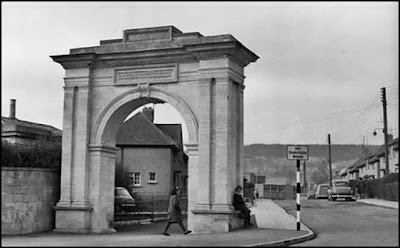Slave Ownership
 |
| Holing cane was a process by which slaves planted sugar cane |
Those who decide to thoroughly research their family histories should prepare themselves for the high probability they will uncover disturbing—sometimes deeply troubling—facts about their ancestry. This is especially likely when dealing with those who lived a century or two ago. This I know only too well from first-hand experience.
Slave ownership is a part of my Jamaican family history, with members of the family being listed as owners of slaves in government records of the time. In fact, it is not likely that a Jamaican of European descent can delve into his or her family background and not be confronted with the reality of slavery, a cruel institution by which sub-Saharan Africans lived a lifetime in harsh bondage and were too often worked to death, assuming they did not first succumb to one of the diseases that ran rampant through their communities.
But slavery was a fact of life and has influenced too much Jamaican demographics and that island’s history and culture to be ignored. Mercifully, the Slavery Abolition Act 1833 ended slavery in Jamaica and the rest of the British Empire on 1 Aug. 1834. Bondage lingered on in Jamaica in the form of “apprenticeship,” which too came to an end on 1 Aug. 1838.
England’s only existing monument to the abolition of the slave trade is Henry Wyatt’s Memorial Arch in Stroud, Gloucestershire. This stands on a property once owned by my 3rd great-grandaunt Elizabeth Cooke, née Kellerman, who was the daughter of a Jamaican slave owner. The Kellermans owned several properties including the Coffee Mountain, Bloxburgh, in the Port Royal Mountains on which he had nearly 300 enslaved persons.
I find this an ironic coincidence since it is unlikely Henry Watt knew of Elizabeth’s family background.
 |
| Abolition Arch | Erected in 1833 by Henry Wyatt of Stroud |
The arch is inscribed as follows:
ERECTED TO COMMEMORATE THE ABOLITION OF SLAVERY IN THE BRITISH COLONIES THE FIRST OF AUGUST, A.D. MDCCCXXXIV
In 1833, the Cookes sold Farmhill Park to Henry Wyatt. It was an estate consisting of a house and sixty acres of parkland.
Over the years I have delved into the subject and found informative accounts that were written before emancipation and so were without the influence of modern values, novels and movies. I hope, as part of this project, to document some of my research with my own thoughts and interpretations.
Comments
Post a Comment